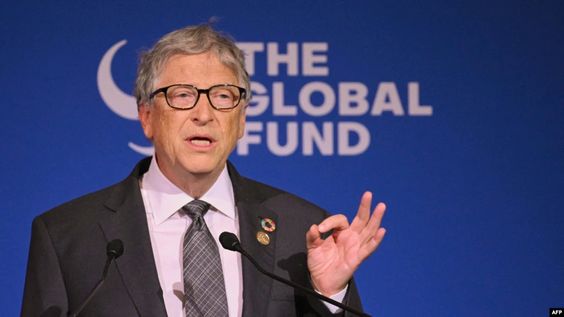Headlines
Bill Gates to Invest $2.8 Billion in Nigeria’s Healthcare, Nutrition, and Agricu Sectors

Bill Gates announces plans to inject $2.8 billion into Nigeria’s healthcare, nutrition, and agriculture sectors, aiming to improve public health, food security, and sustainable development.
On Wednesday in Abuja, Bill Gates, the founder of Microsoft and a philanthropist, unveiled his intention to invest $2.8 billion into Nigeria’s healthcare, nutrition, and agricultural industries with the aim of revitalizing them.
During the National Economic Council meeting chaired by Vice President Kashim Shettima at the Presidential Villa, Gates emphasized Nigeria’s dire need to invest in its people – the country’s greatest resource. He addressed economic challenges faced by Nigeria while outlining his intentions for doing so.
Having served as the co-chair of the Bill & Melinda Gates Foundation, Gates has consistently championed for Nigeria and pledged a total sum exceeding $2.8 billion to support its growth – marking it as Africa’s largest commitment in history.
During his speech to the NEC, he emphasized on Nigeria’s current economic challenges and opportunities which have arisen as a result of stagnation along with mounting national debt.
Emphasizing the significance of giving primary healthcare utmost priority, he highlighted that health is imperative for any chance at progress. Despite Nigeria’s affluence, a meager N3,000 per individual yearly expenditure towards primary healthcare was pointed out by him and argued to be reversed in ratio.
Nigerian leaders were encouraged to augment the funding allocated for primary healthcare as well as guarantee prompt distribution of resources, according to his plea.
Recent efforts, like the triumphant HPV vaccination campaign that catered to over 12 million girls in Nigeria within a month received appreciation from him. Nonetheless, he emphasized on unceasing enhancement particularly in data-oriented decision-making so as to optimize healthcare provision and administration of workforce.
READ ALSO: Bill Gates: Nigeria’s Tax Collection Rate is Insufficient
Gates drew attention to the distressing prevalence of child malnutrition in Nigeria concerning nutrition, thereby having a hand in almost half of all child fatalities.
He advocated for more participation from the private sector in fortifying food and implored state governments to guarantee adherence to nutritional regulations.
In addition, he talked about cost-effective methods to improve maternal health. For instance, the implementation of multiple micronutrient supplements (MMS) could prevent numerous instances of anemia and rescue a substantial number of newborns.
Gates voiced his worry regarding Nigeria’s food insecurity in the agricultural industry, which has been intensified by both climate change and improper farming methods.
He promoted the idea of boosting financial allocation for extension services, fertilizers, and infrastructure to facilitate farming.
Encouraging the adoption of innovative crop varieties with higher yields and resistance to pests, such as newly developed cassava types supported by the Gates Foundation, was also part of his advocacy.
He reiterated the Gates Foundation’s enduring dedication to Nigeria and Africa.
Despite acknowledging the challenges in reversing Nigeria’s fortunes, he remained hopeful that by making intelligent investments, employing innovative ideas and displaying committed leadership skills, a brighter future could be constructed for the country.
Gates suggested that Nigeria’s leaders prioritize the Nigerian people in order to construct a superior future. He maintained his faith in the impressive conception of Nigeria’s potential and affirmed that progress hinges on everyone collectively contributing towards it.
